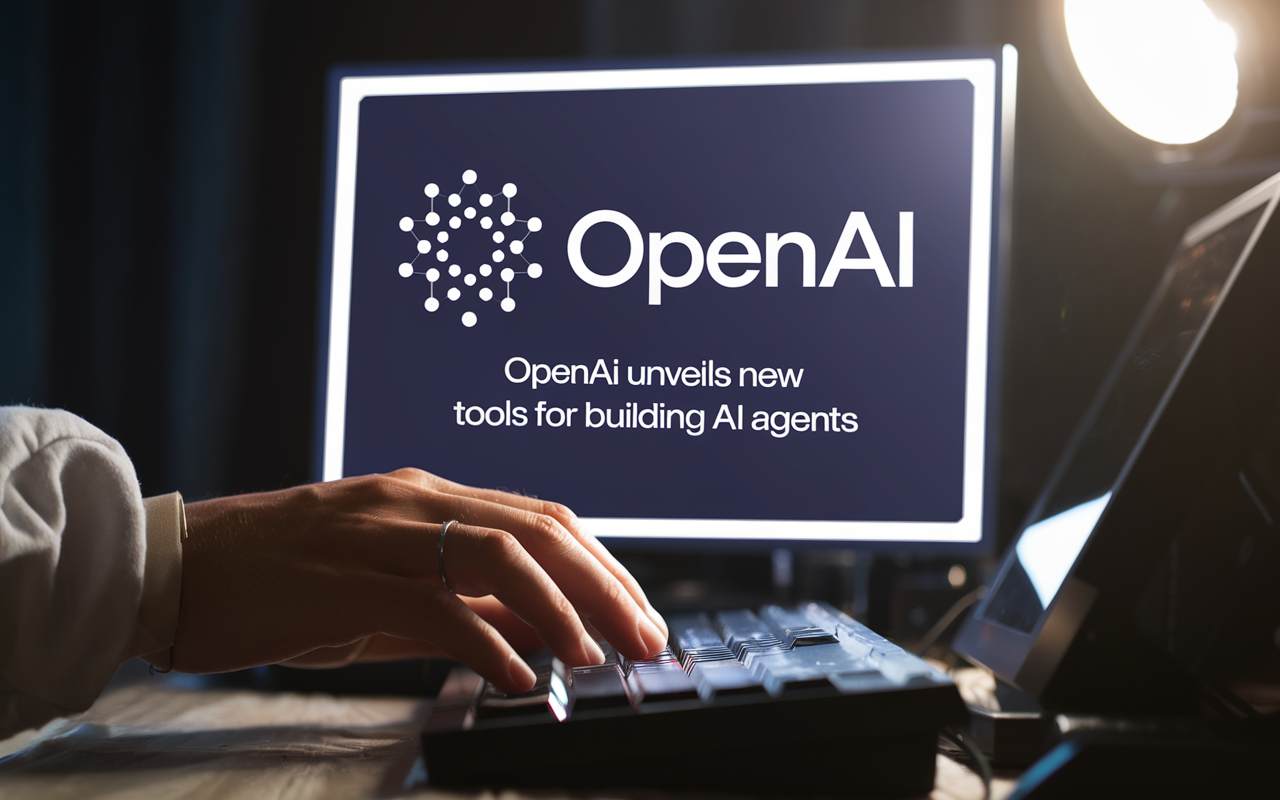OpenAI's New Tools: A Game Changer for Building AI Agents 🤖✨
In the fast-paced world of technology, every new development has the potential to change the course of industries. On March 11, 2025, OpenAI made a significant stride forward by unveiling its new tools designed to help businesses build AI agents. 🚀 These automated systems can now independently accomplish tasks using OpenAI’s advanced AI models and frameworks, marking a major evolution in the field of artificial intelligence.
What’s New with OpenAI? 🌟
The freshly launched tools are part of OpenAI’s Responses API, which replaces the older Assistants API. The new API allows businesses to develop custom AI agents capable of performing various tasks such as web searches, scanning company files, and navigating websites. This means enhanced functionality and greater autonomy for AI applications—a welcome change as the hype surrounding AI agents continues to rise. 💡
Olivier Godement, OpenAI’s API product head, highlighted the challenge of scaling AI agents: “It’s pretty easy to demo your agent…to scale an agent is pretty hard, and to get people to use it often is very hard.” 💬 This acknowledgment of the market’s complexities shows that while the technology is promising, achieving widespread adoption is no small feat.
A Shift Towards Utility and Reliability 🔧
The recent trend of AI agents has certainly captured public excitement, yet many portrayals in the tech industry have often led to unrealistic expectations. Recent examples, such as the AI agent platform Manus by Chinese startup Butterfly Effect, illustrate the pitfalls of not delivering on promises. OpenAI must strive not only to present flashy technology but also to produce tools that are impactful and reliable. 📈
The Responses API is equipped with powerful features, including access to OpenAI’s GPT-4o search models, known for their factual accuracy. According to OpenAI, the GPT-4o search can achieve an impressive 90% accuracy on its SimpleQA benchmark for answering short, fact-seeking questions. This bodes well for developers seeking to create robust applications that users can trust.
Moreover, enterprises can also run the Computer-Using Agent (CUA) model, which allows developers to automate tasks on their systems with a promising degree of reliability. However, OpenAI advises that as of now, the CUA model is still in its research preview stage and isn't fully dependable for operating systems. Acknowledging limitations upfront is essential in setting realistic expectations. ⚠️
The Future of AI Agents: Bridging the Gaps ⏳
The introduction of an open-source toolkit called the Agents SDK accompanies the Responses API, providing developers with the resources to integrate models with their internal systems while ensuring safeguards and monitoring capabilities. This initiative not only empowers developers but also signifies OpenAI’s commitment to transparency and reliability in its products. 🛡️
Whether 2025 will indeed be the "year of the AI agent" remains to be seen, yet OpenAI’s latest endeavors certainly pave the way for a more substantial presence of AI agents in the workforce. As Godement reiterates, the goal is to bridge the gap between demonstrations of AI agents and their real-world applications.
Conclusion: Embracing Change and Innovation 🌍
OpenAI’s latest tools signal an exciting shift in the landscape of AI technology. While challenges remain, the promise of building more reliable AI agents is tantalizing. Developers and businesses alike have a chance to harness these advancements, leading us into a future where AI can significantly enhance productivity and efficiency.
Stay tuned for more updates as we navigate this evolving frontier of technology! Are you excited about the potential of AI agents? Share your thoughts! 💬
Tags: #OpenAI #ArtificialIntelligence #AIagents #Innovation

More Stories
Meta’s AR Ambitions and AI Safety: Insights from the Equity Podcast
Insight Partners Data Breach: A Wake-Up Call for Cybersecurity Awareness
Lovable’s Ascendancy: Anton Osika at TechCrunch Disrupt 2025